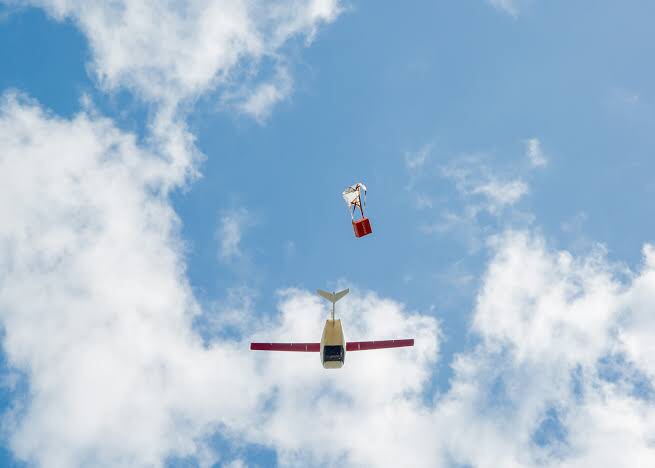The Pan-African e-commerce company, Jumia, has collaborated with Zipline to launch on-demand drone delivery in Ghana, with plans to expand the service to Nigeria and Côte d’Ivoire in the near future.
Jumia disclosed that to facilitate quick home deliveries, particularly to customers living in rural areas, it can carry only a few types of products delivered through the service.

According to Zipline Africa’s senior vice president, Daniel Marfo, “Zipline is pleased to partner with Jumia to use instant logistics to improve the lives of customers across Africa.” This collaboration will increase access to goods for customers and help small and medium-sized businesses grow. Jumia’s safe and efficient instant logistics system will make shopping on Jumia even more convenient, sustainable, and accessible for its customers. ”
Jumia revealed that the launch follows a successful test run between its offices in Ghana. The partnership also comes after Jumia’s recent efforts to boost eco-friendly delivery alternatives and after its recent collaborations with electric car companies Solar Taxi and eBee in Ghana and Kenya, respectively.
Read: Jumia Shares Rise After A Tough First Quarter
Zipline started out in Rwanda and then moved to Ghana, where it used its autonomous electric drones to deliver life-saving medical supplies like blood and vaccines, especially during the COVID-19 virus outbreak to stop a pandemic. This event was marked in 2014.
The startup has since spread its operations to other countries within Africa and the Americas, where it is a logistics provider for a number of companies, including Novant Health and retail giant Walmart.
The Focus of African Logistics
Entrepreneurs and multinationals alike are now gradually heaving a sigh of relief with this rapid advancement and collaboration happening in the logistics and supply chain industry across the continent.
However, while millions of young Africans are migrating to megacities across the continent, most of Africa’s population remains largely rural. The lack of adequate road infrastructure in rural areas leaves many of the population disconnected from supply chains.
With collaborations like Jumia/Zipline and Twiga Foods/InspiraFarms, which began in April 2022, ending this urban-rural divide is the direction of African logistics.
